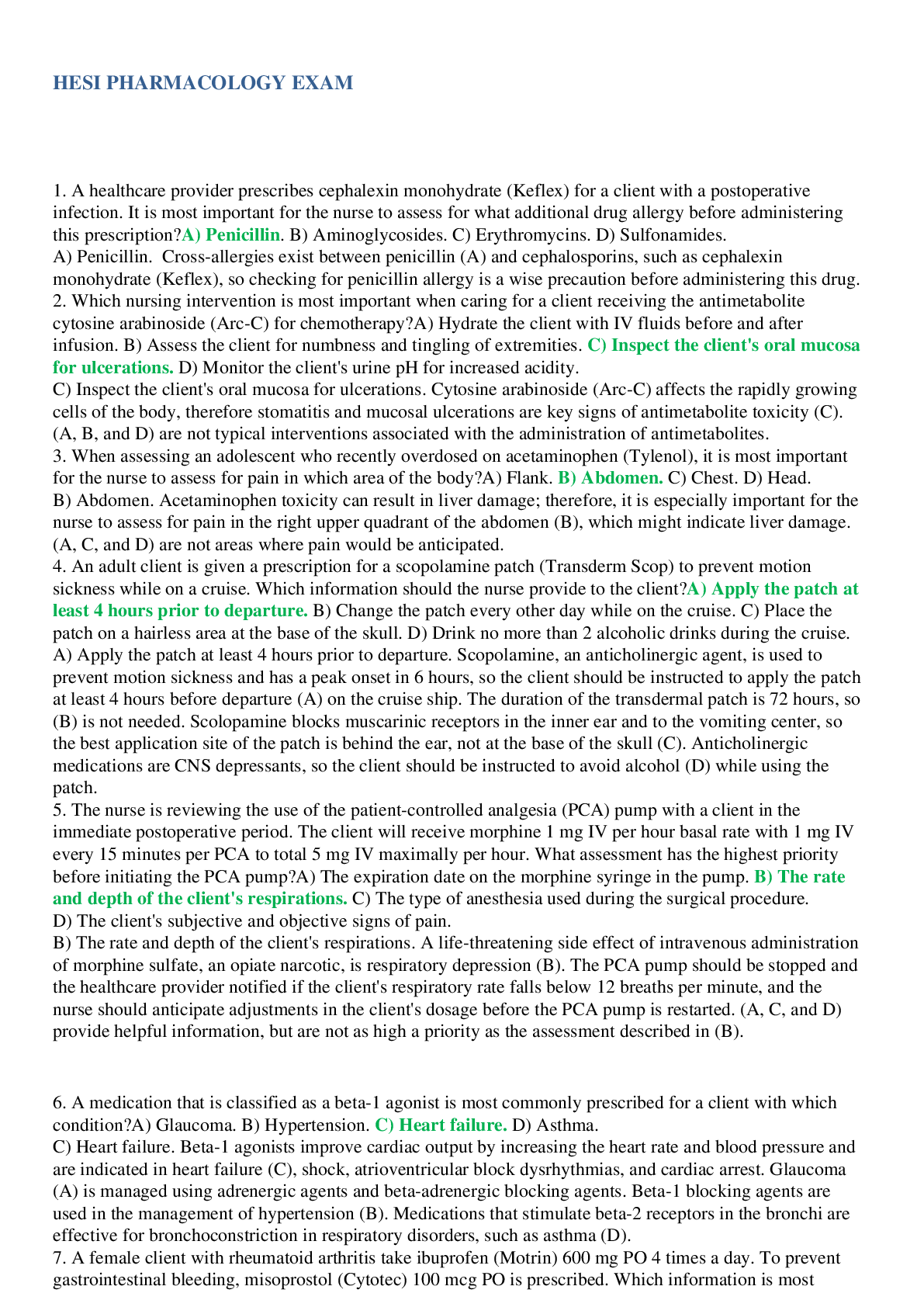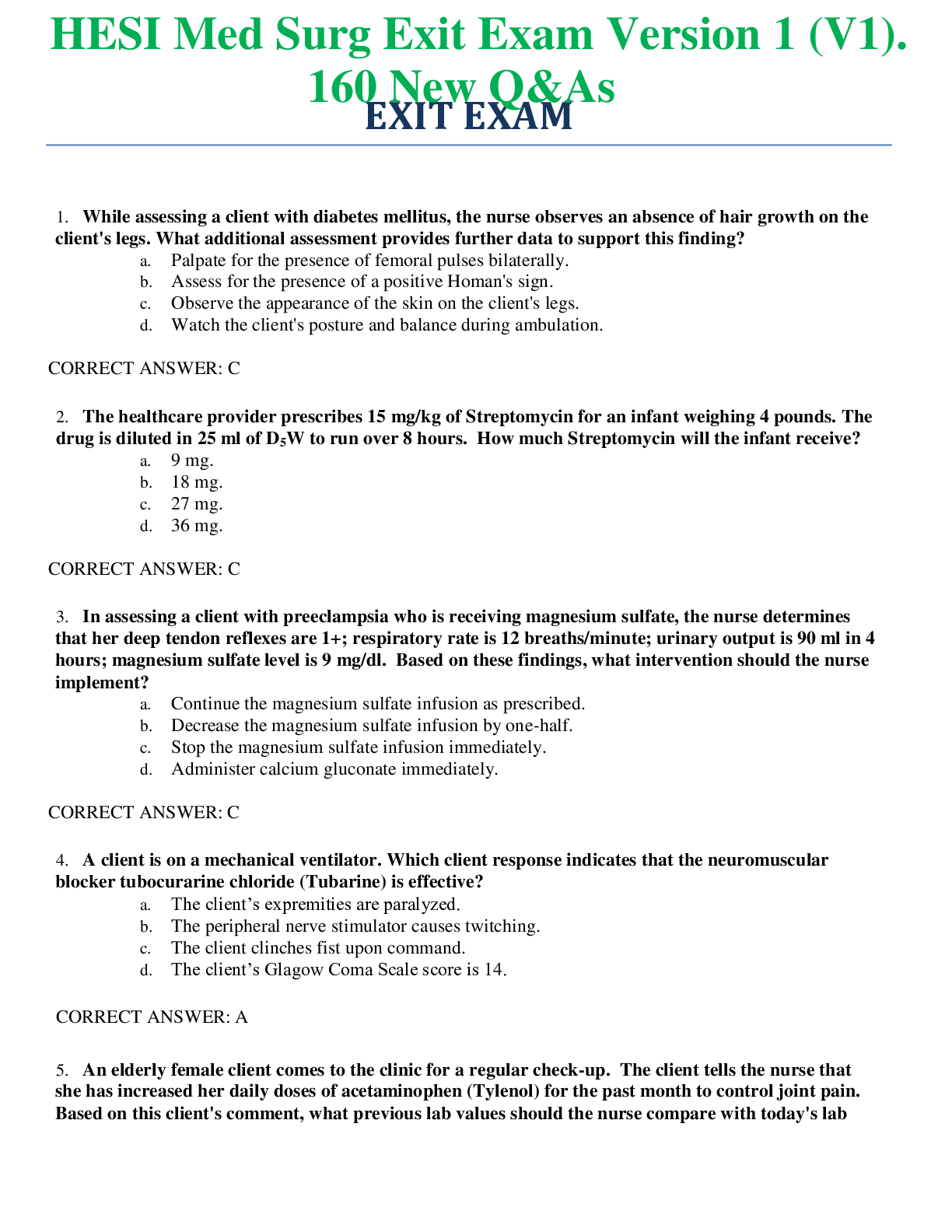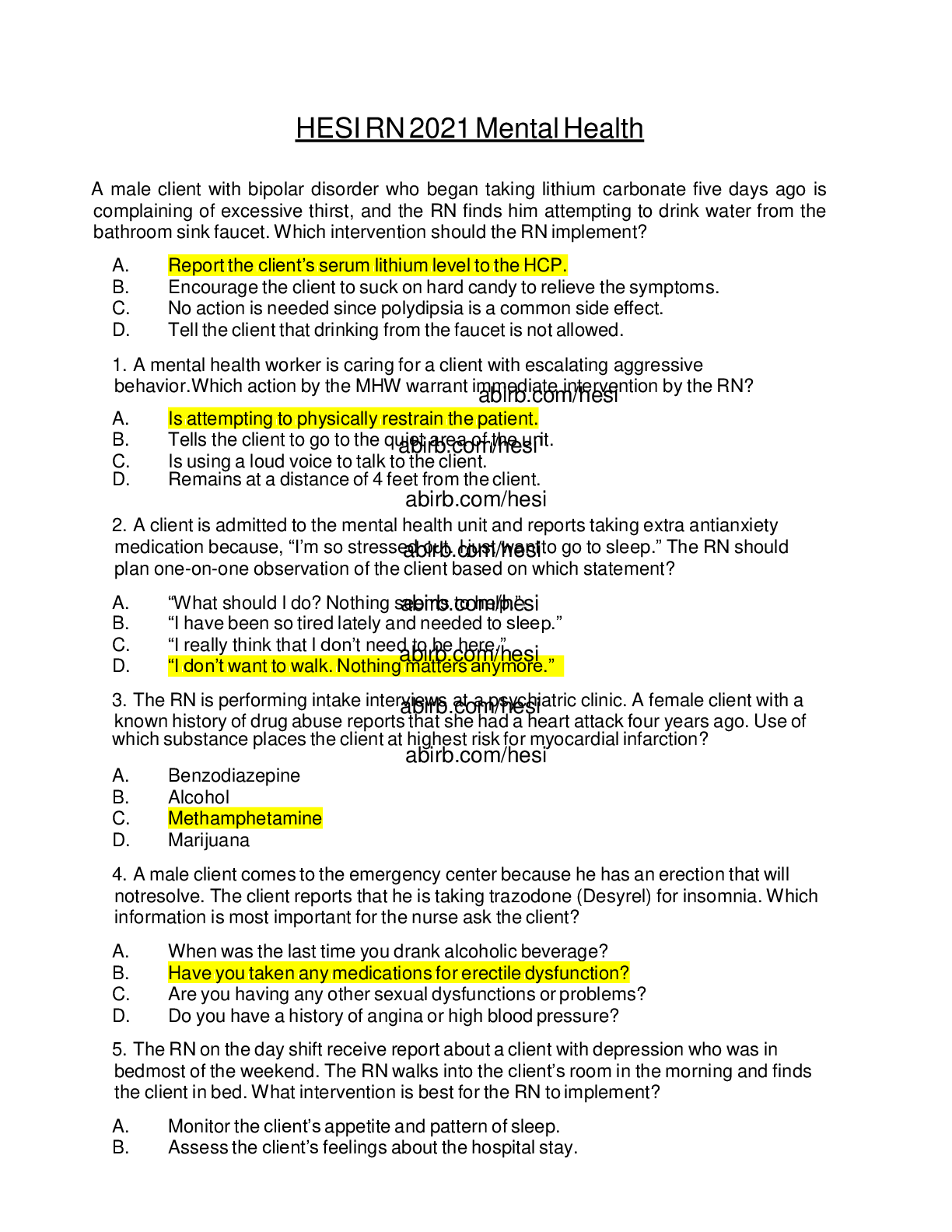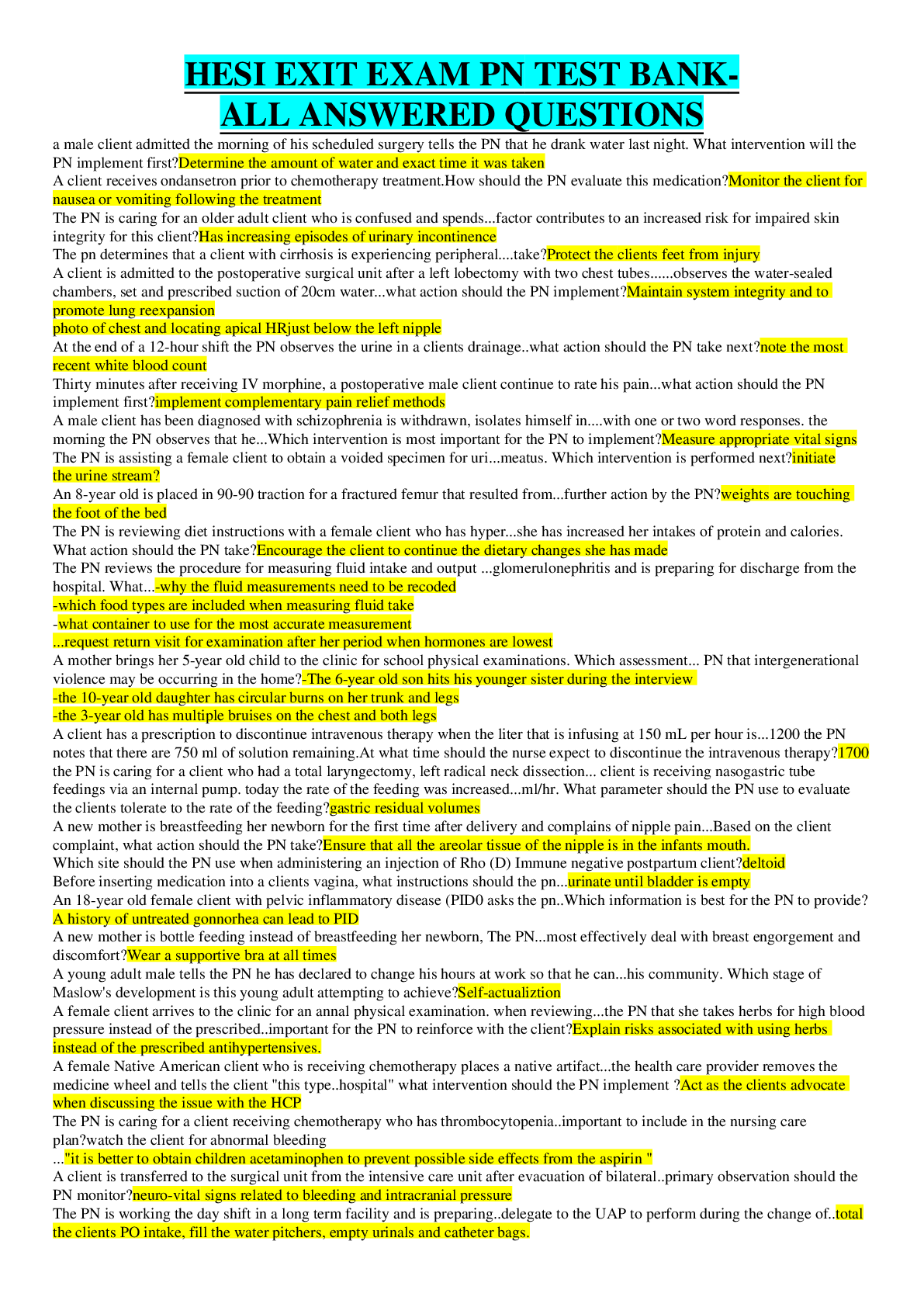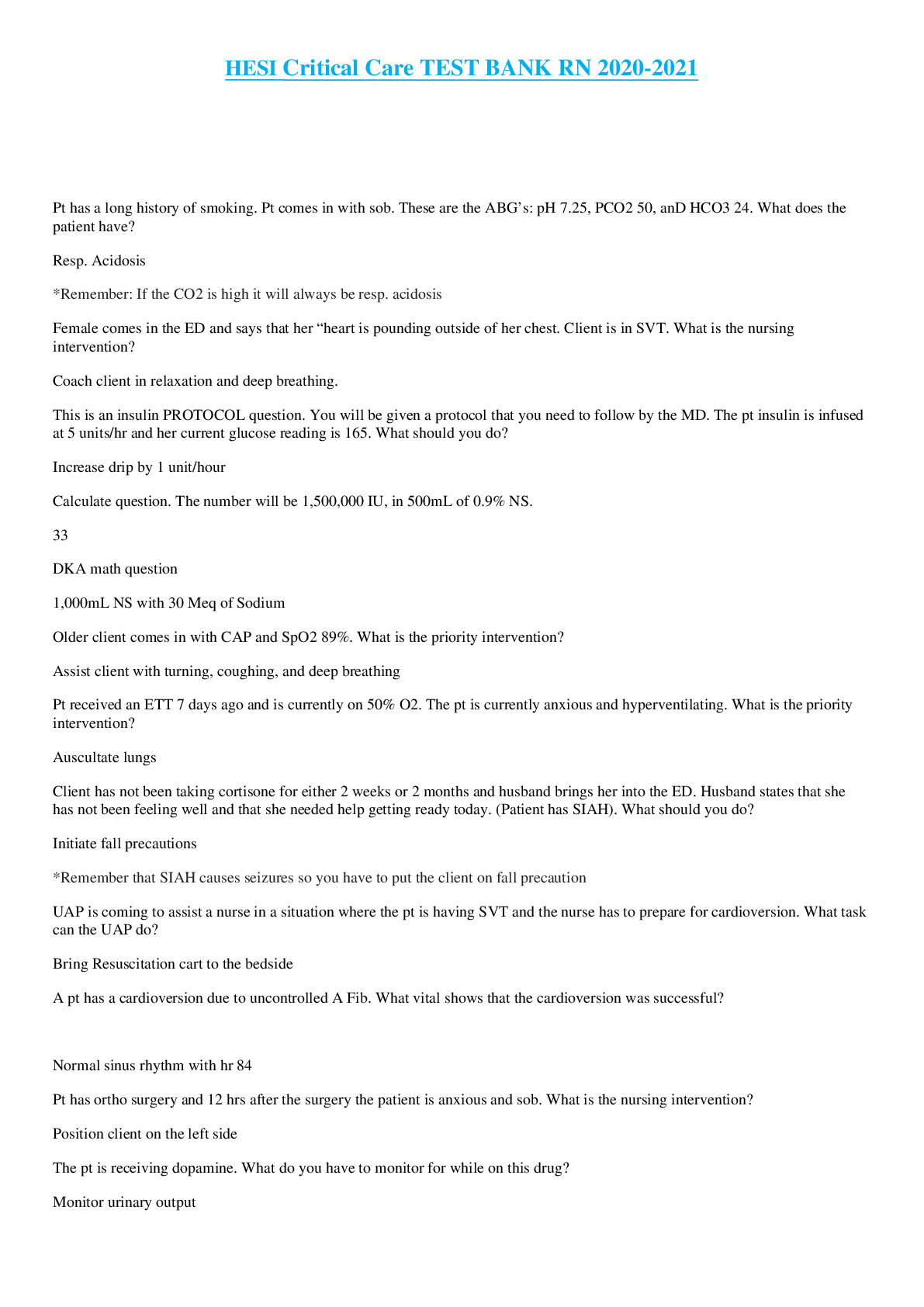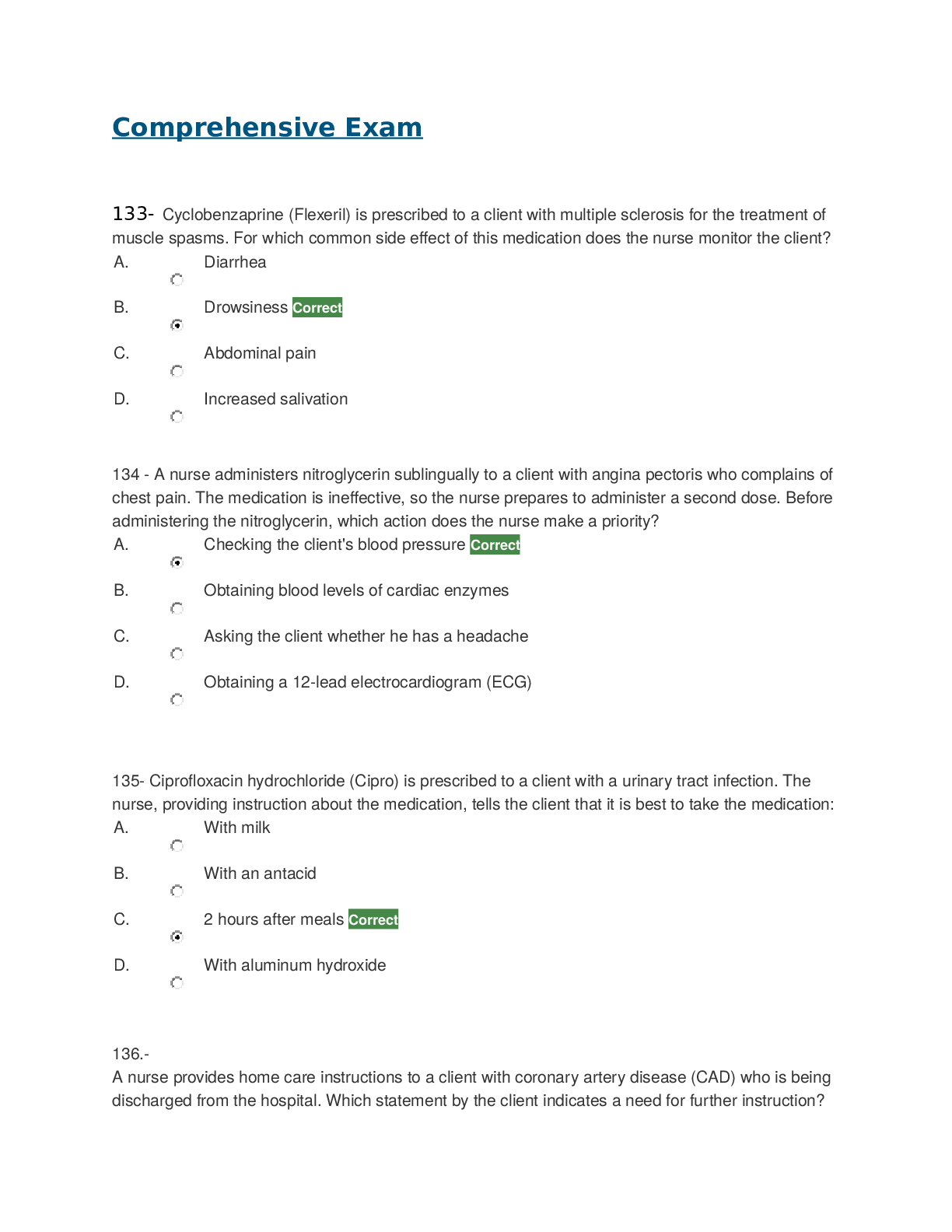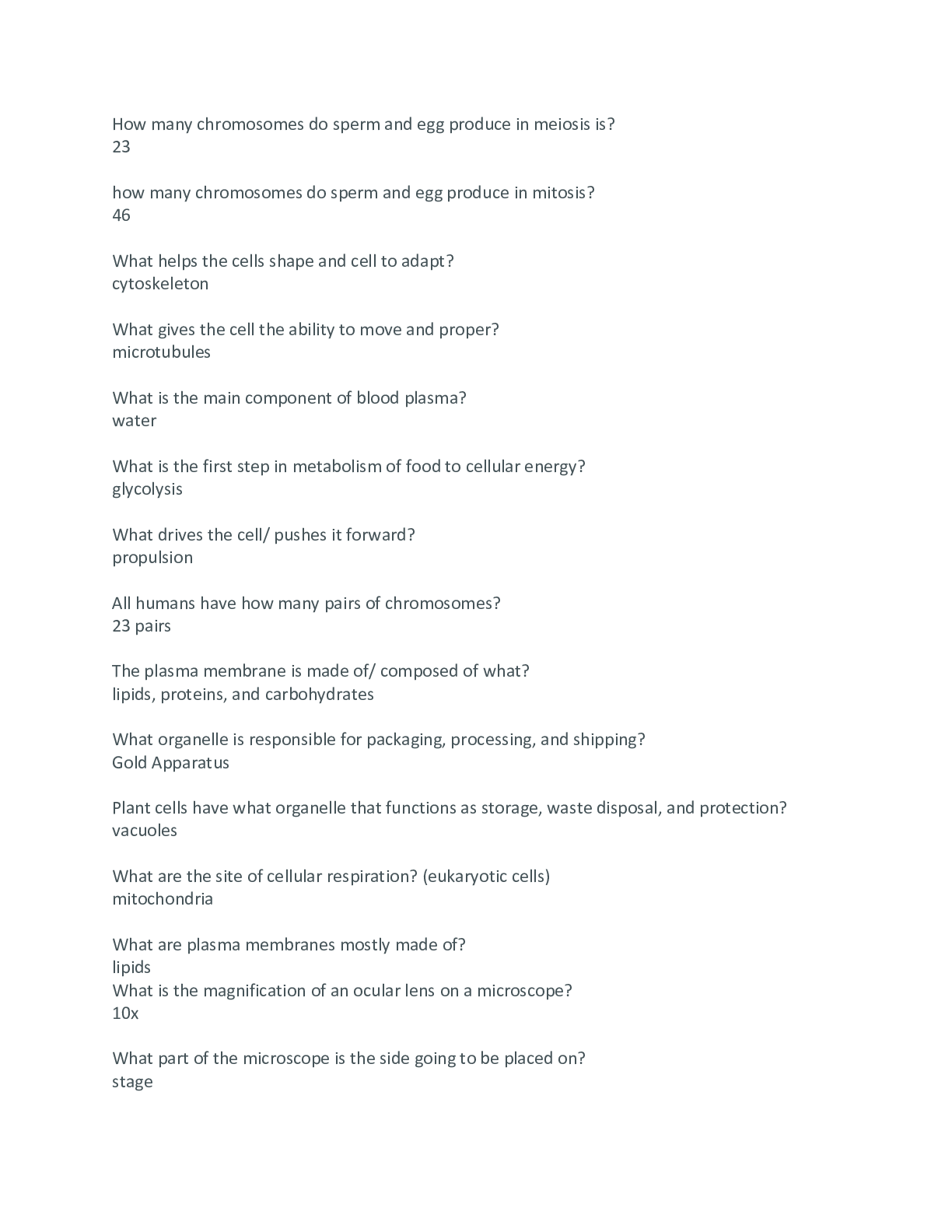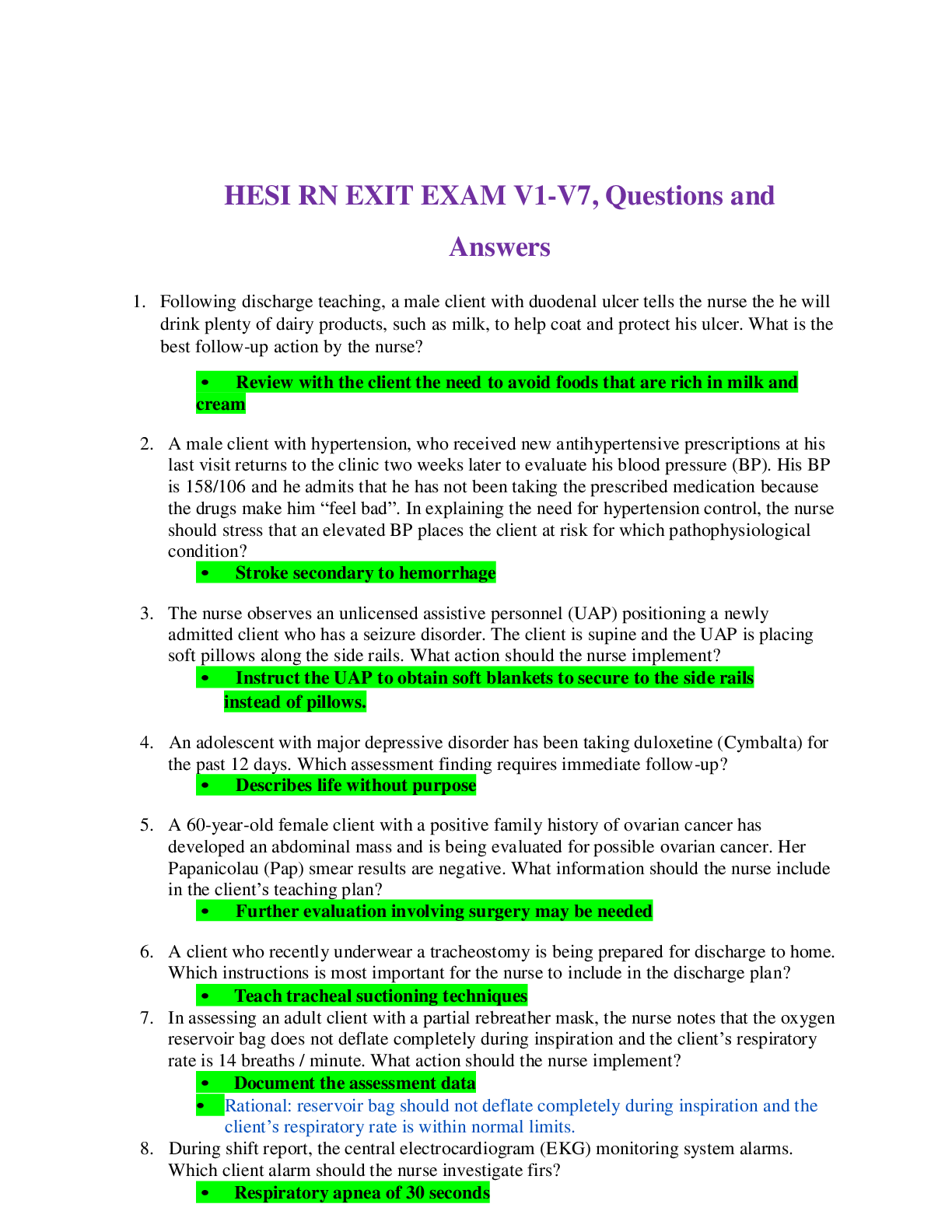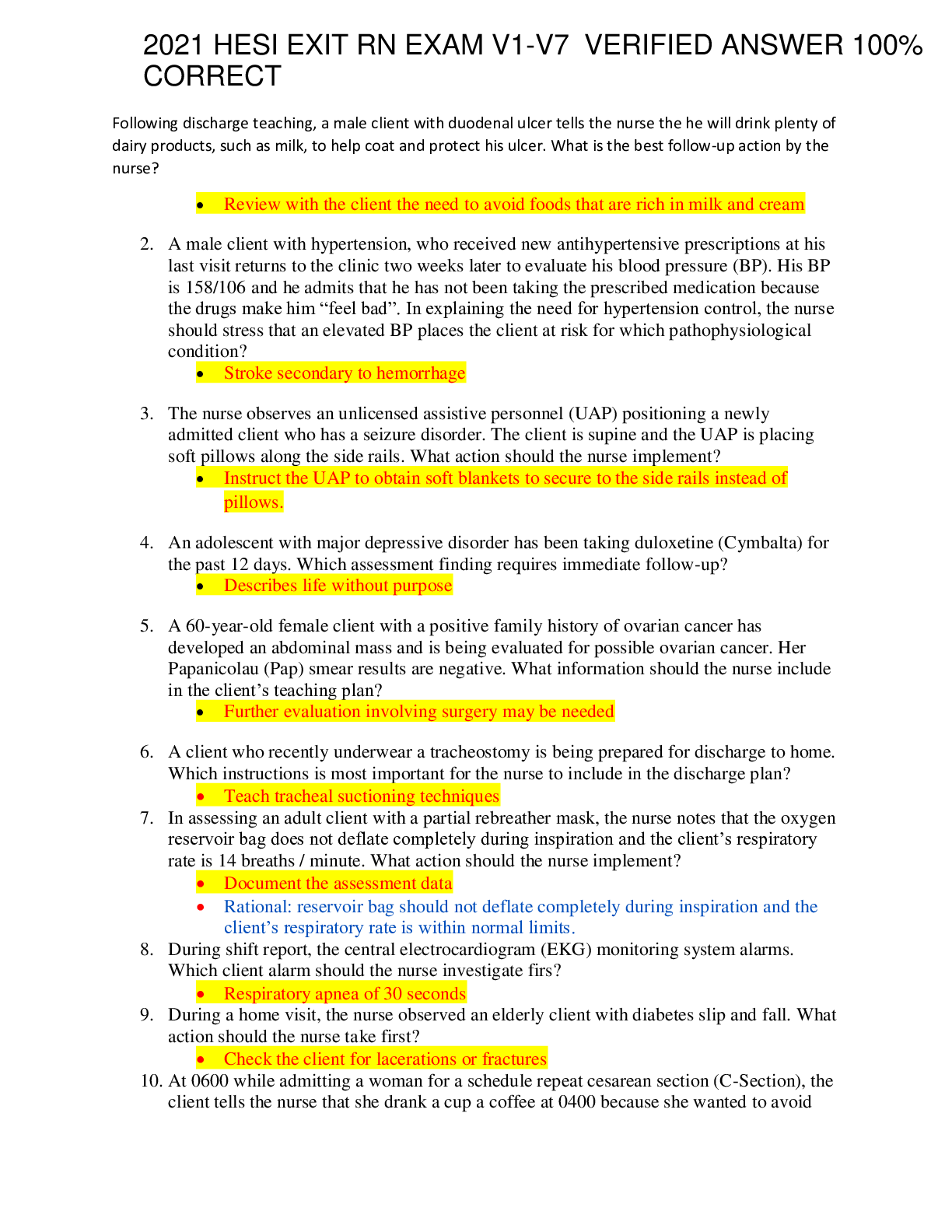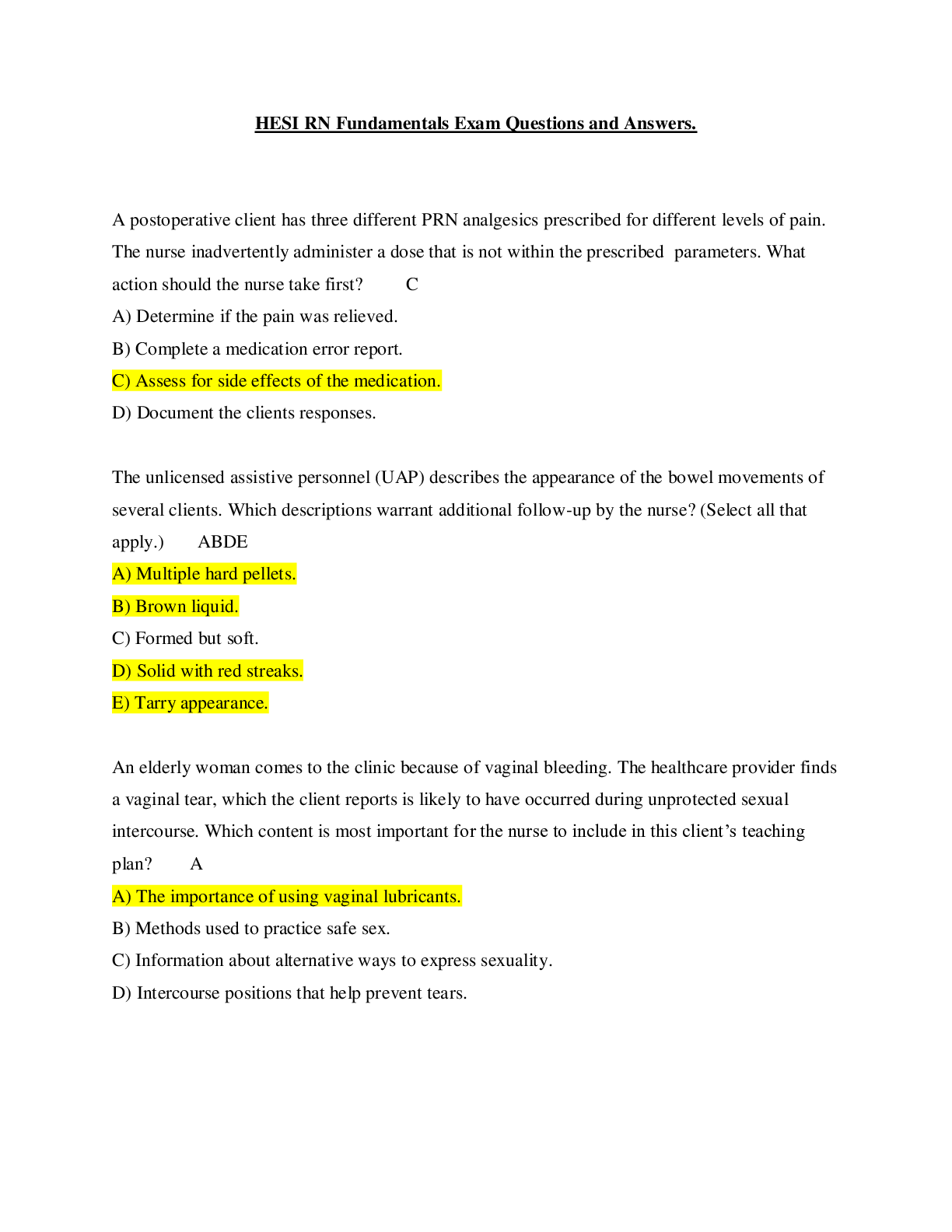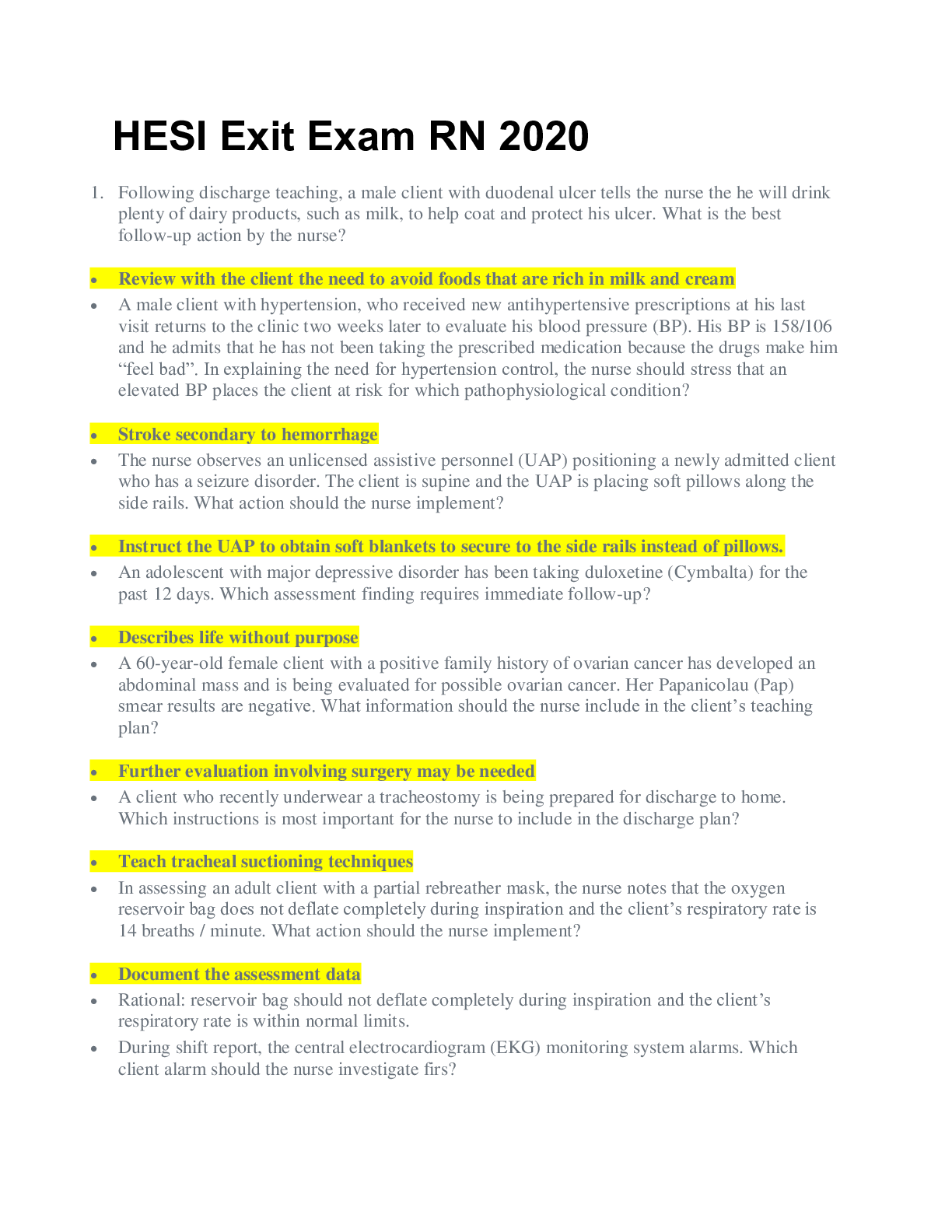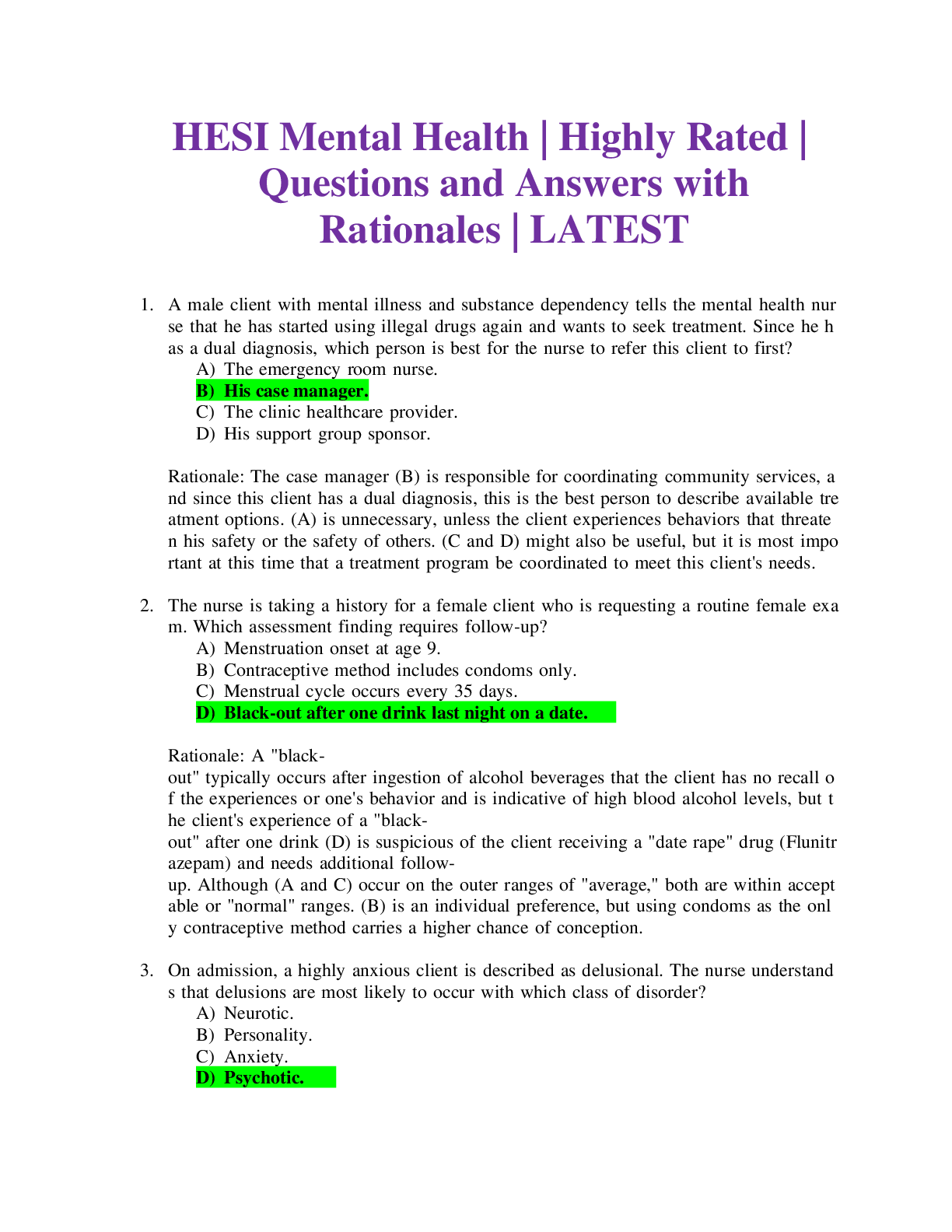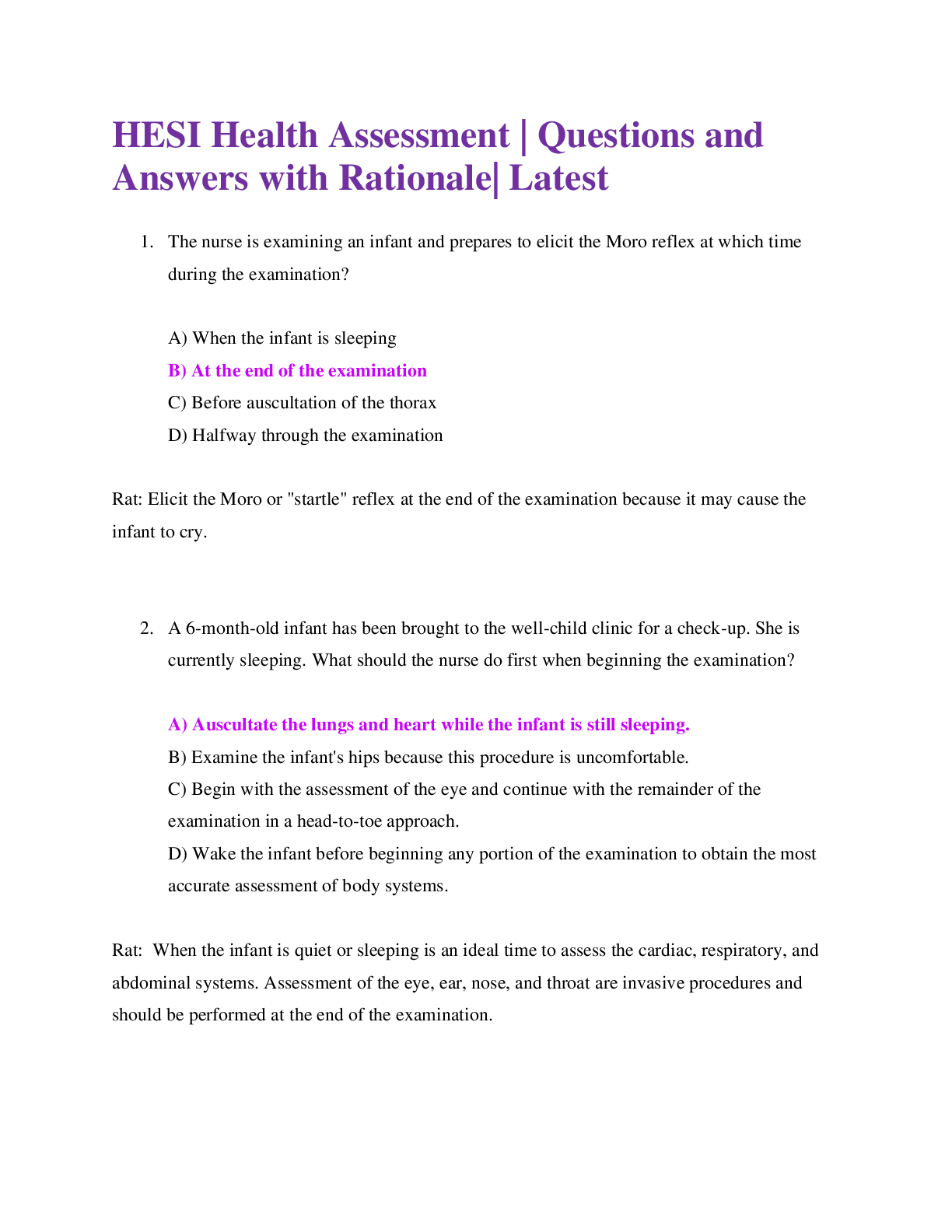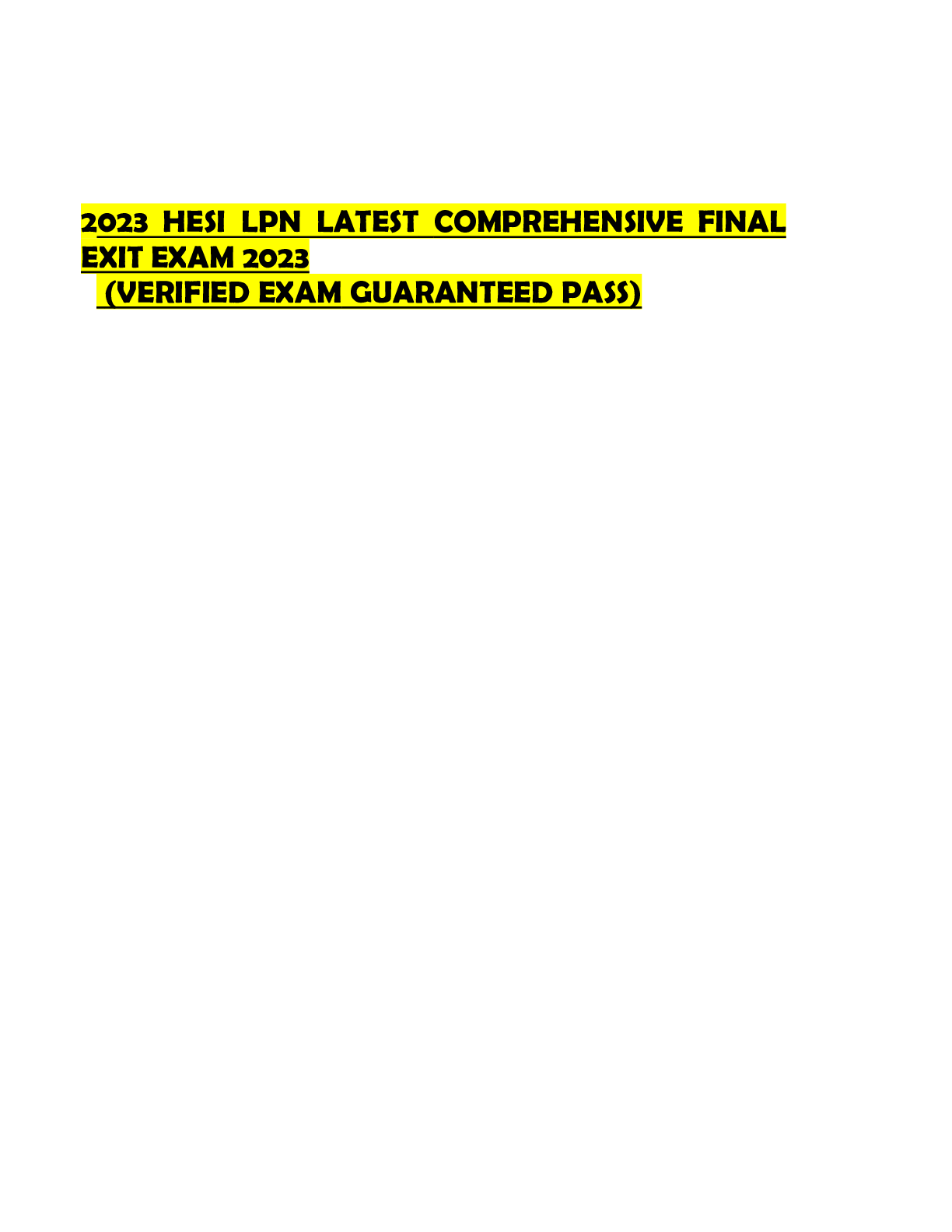Health Care > HESI > Hesi Critical Thinking (All)
Hesi Critical Thinking
Document Content and Description Below
Hesi Critical Thinking 1. The nurse is working in the emergency department (ED) of a children's medical center. Which client should the nurse assess first? Correct - 3-The child hit by a car shoul... d be assessed first because he or she may have life- threatening injuries that must be assessed and treated promptly. 2. The 8-year-old client diagnosed with a vaso-occlusive sickle cell crisis is complaining of a severe headache. Which intervention should the nurse implement first? Correct - 2-Because the client is complaining of a headache, the nurse should first rule out cerebrovascular accident (CVA) by assess- ing the client's neurological status and then determine whether it is a headache that can be treated with medication. 3. The 6-year-old client who has undergone abdominal surgery is attempting to make a pinwheel spin by blowing on it with the nurse's assistance. The child starts crying because the pinwheel won't spin. Which action should the nurse implement first? Correct -1. The nurse should always praise the child for attempts at cooperation even if the child did not accomplish what the nurse asked. 4. The nurse is caring for clients on the pediatric medical unit. Which client should the nurse assess first? Correct - 4. A pulse oximeter reading of less than 93% is significant and indicates hypoxia, which is life threatening; therefore, this child should be assessed first. 5. The nurse has received the a.m. shift report for clients on a pediatric unit. Which medication should the nurse administer first? Correct - 3-Sliding scale insulin is ordered ac, which is before meals; therefore, this medication must be administered first after receiving the a.m. shift report. 4-Routine medications have a 1-hour leeway before and after the scheduled time; therefore, this medication does not have to be adminis- tered first. 6. A 5-year-old boy is being admitted to the hospital to have his tonsils removed. Which information should the nurse collect before this procedure? D. Reactions to previous hospitalizations Rationale Assess how the child reacted to hospitalization and any complications. If the child reacted poorly, he or she may be afraid now and will need special preparation for the examination that is to follow. The other items are not significant for the procedure 7. A 6-month-old infant has been brought to the well-child clinic for a check-up. She is currently sleeping. What should the nurse do first when beginning the examination? ) Auscultate the lungs and heart while the infant is still sleeping. Rationale When the infant is quiet or sleeping is an ideal time to assess the cardiac, respiratory, and abdominal systems. Assessment of the [Show More]
Last updated: 1 year ago
Preview 1 out of 29 pages
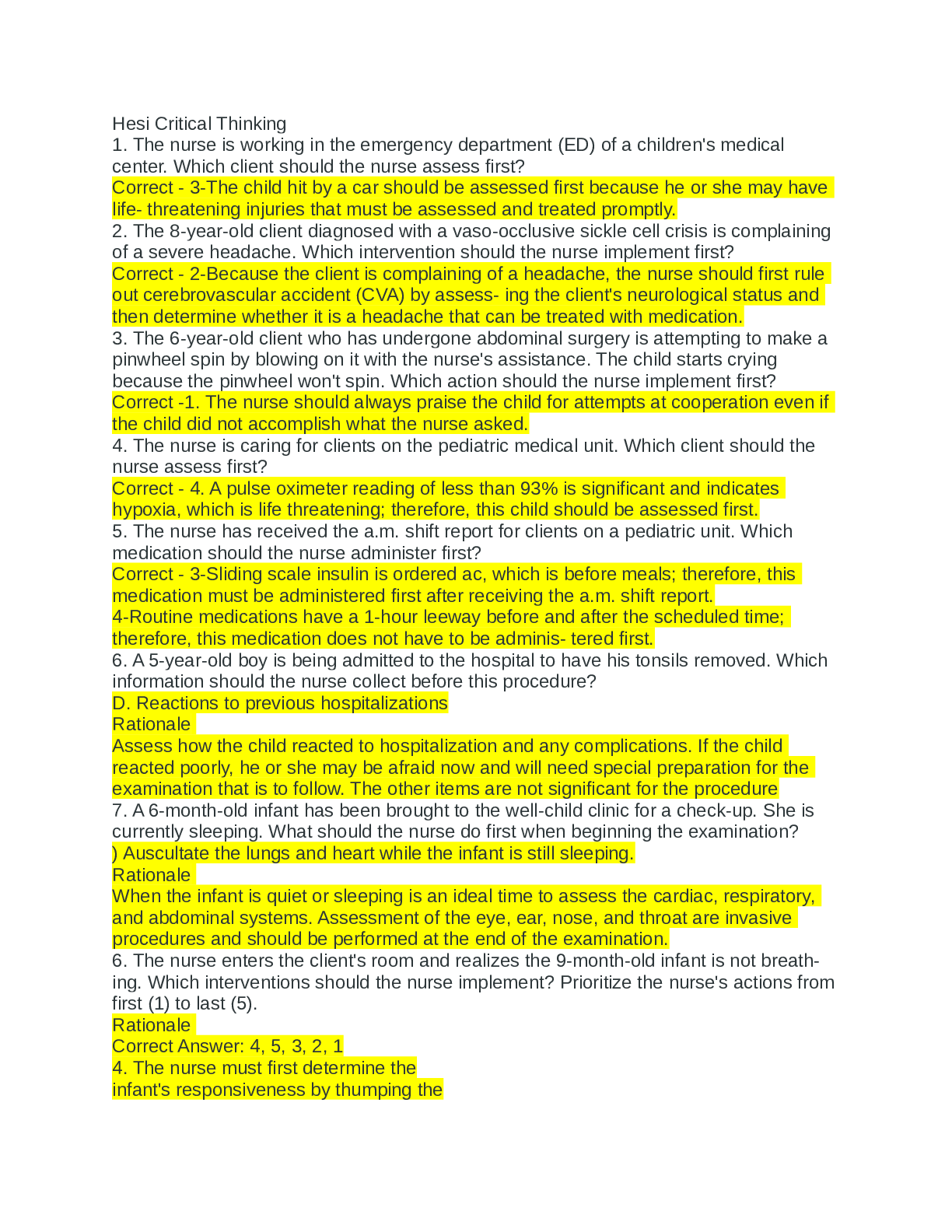
Reviews( 0 )
Document information
Connected school, study & course
About the document
Uploaded On
Jul 11, 2022
Number of pages
29
Written in
Additional information
This document has been written for:
Uploaded
Jul 11, 2022
Downloads
0
Views
45


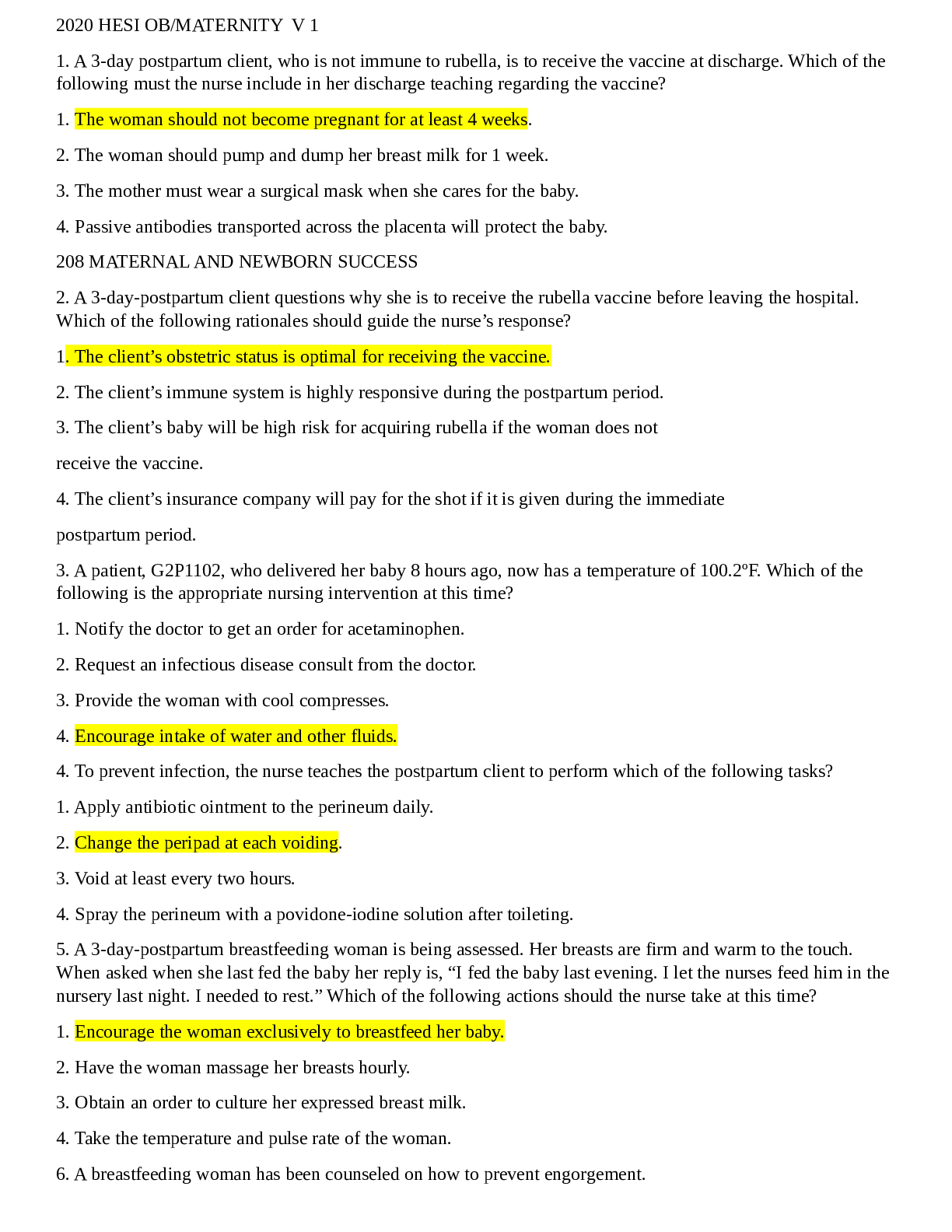
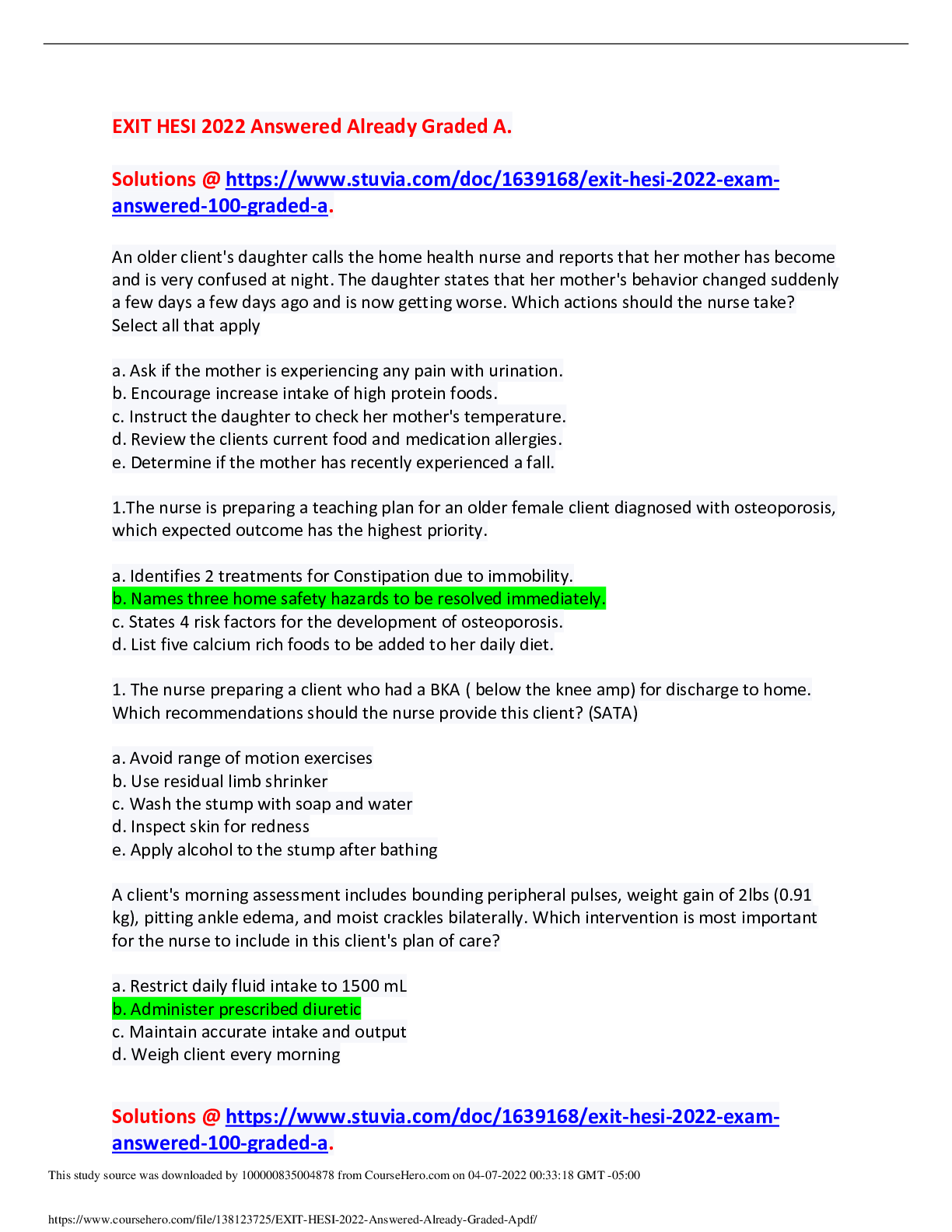




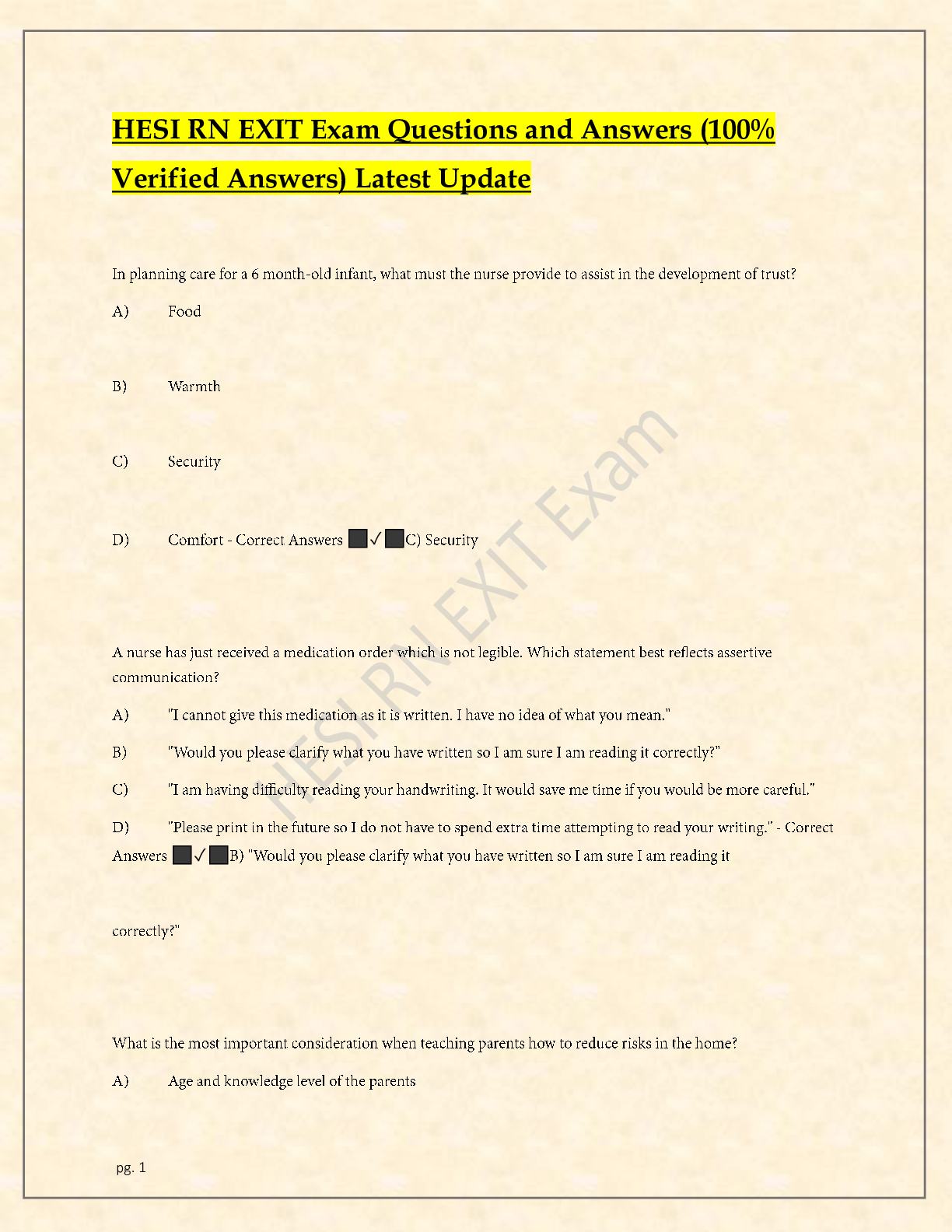
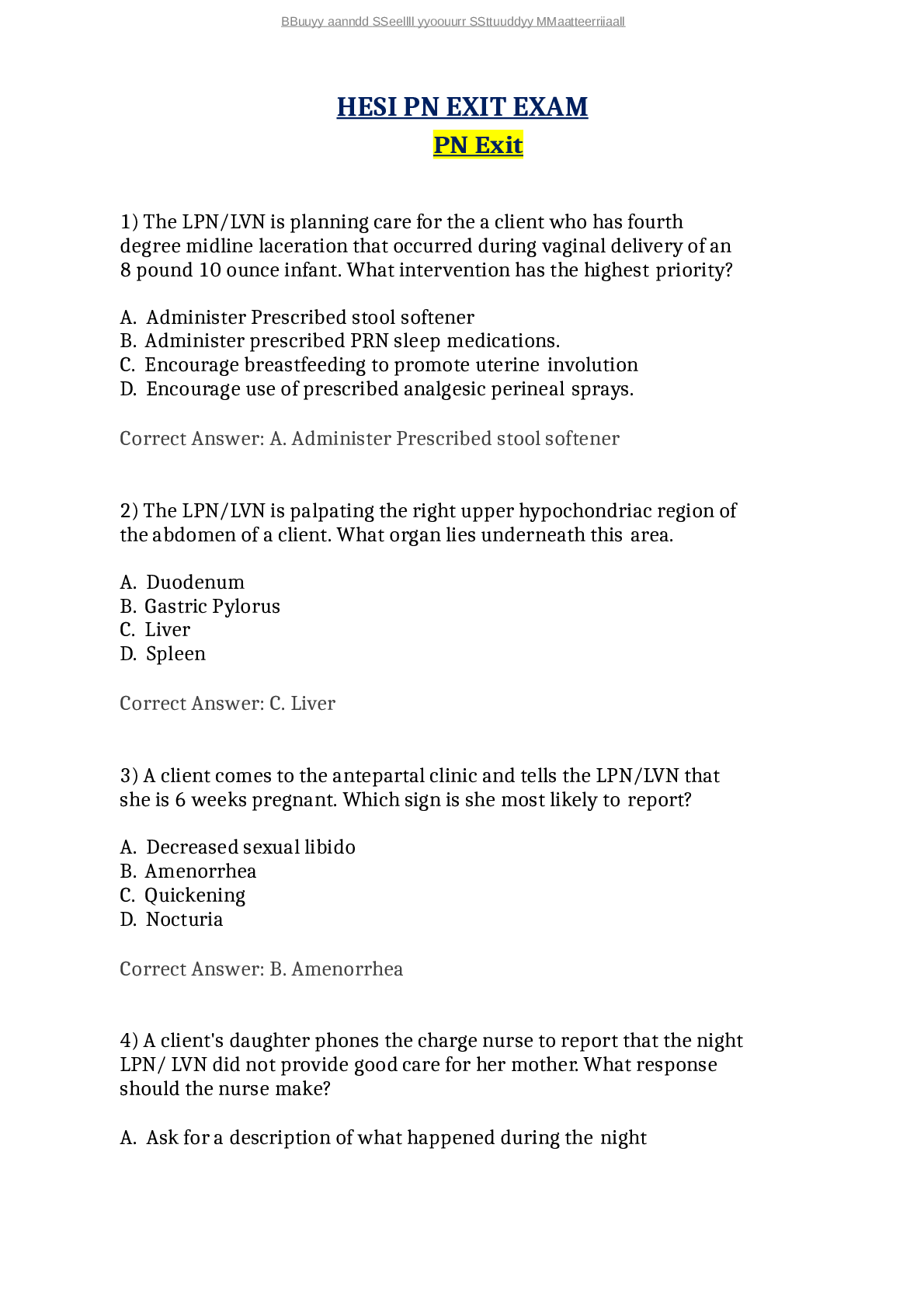
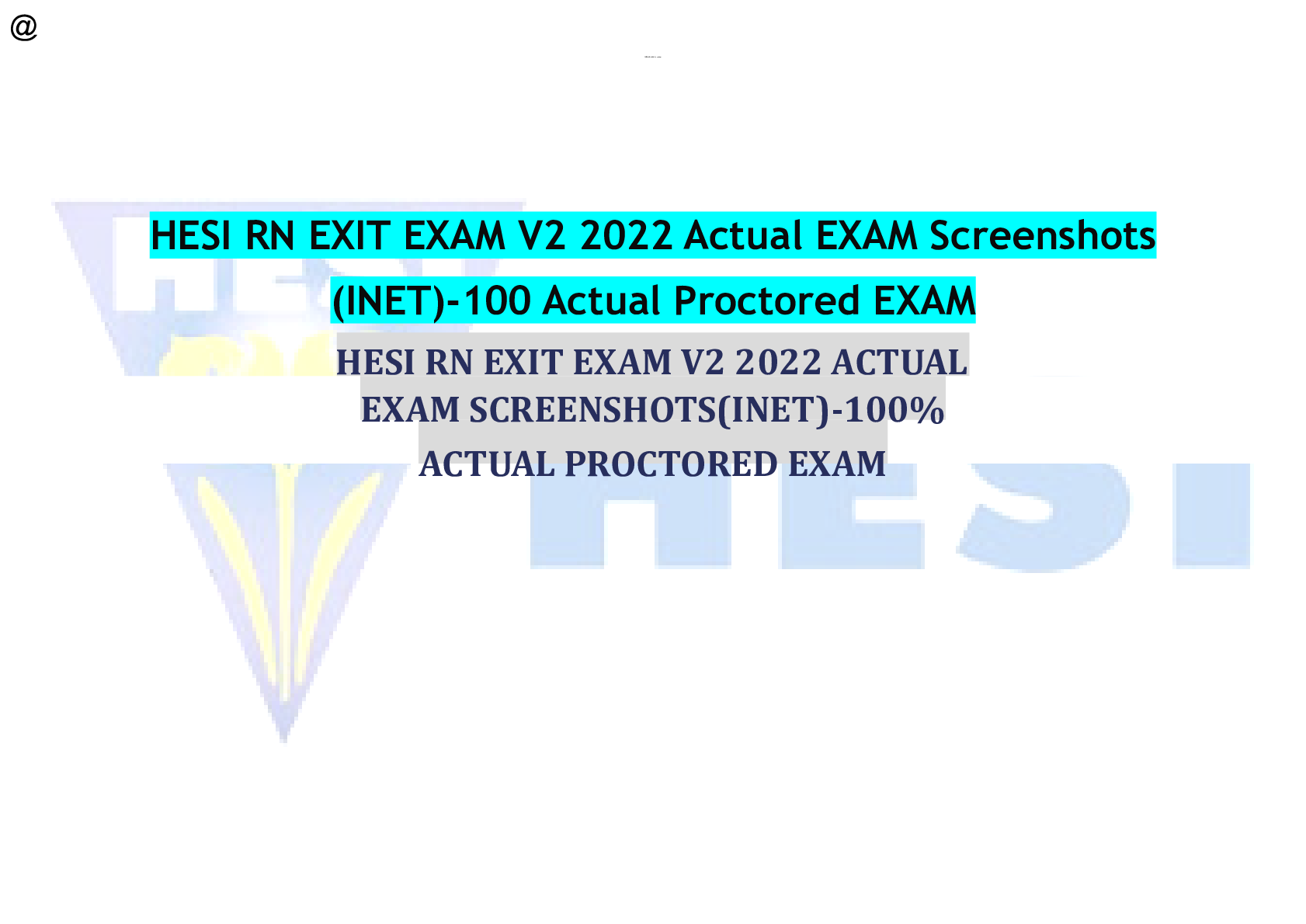
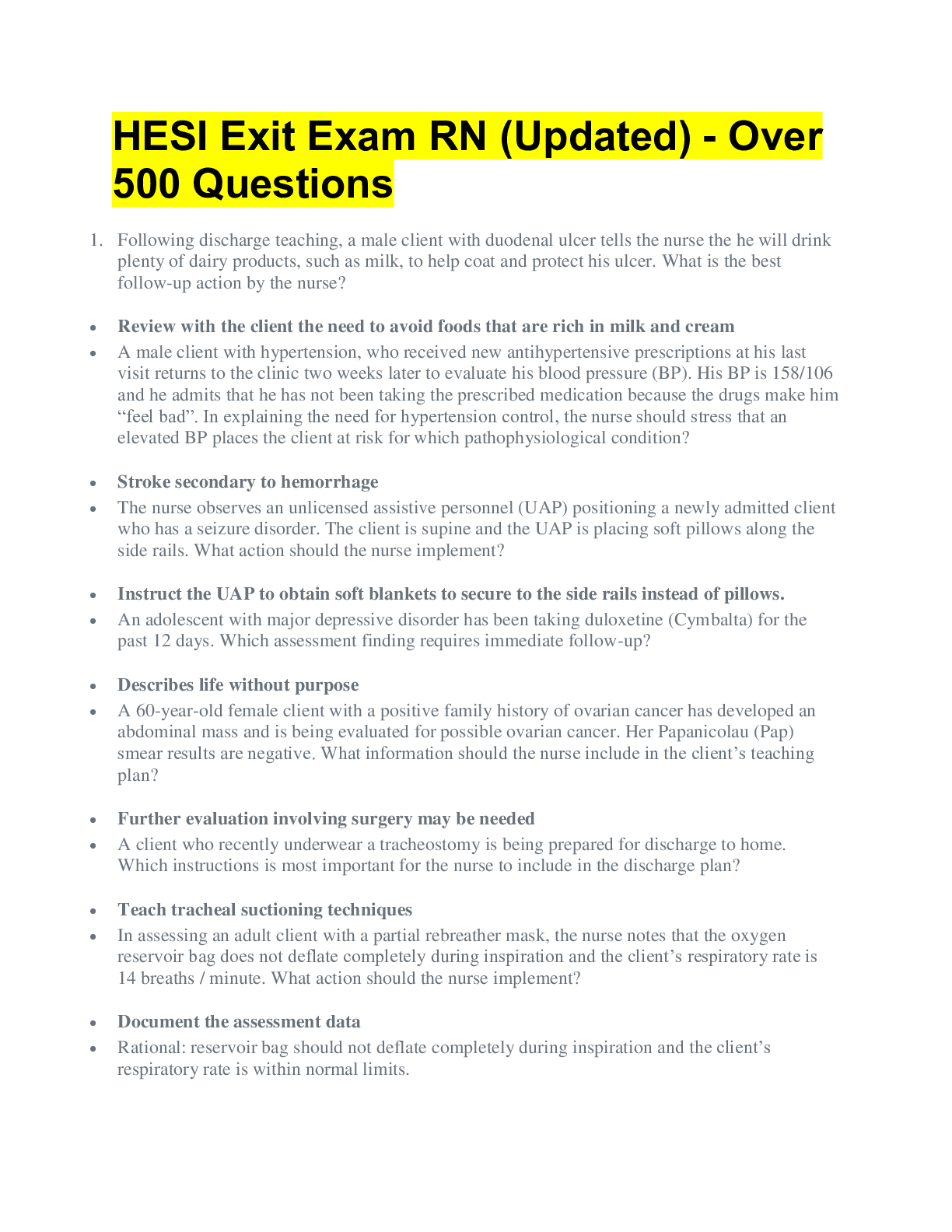
 (1).png)
